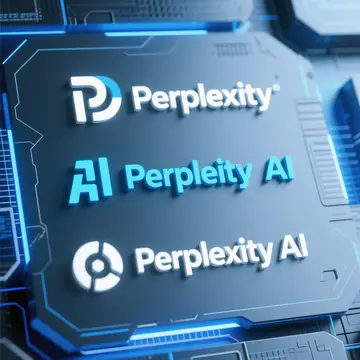As Perplexity AI continues to grow in popularity for AI-powered search and chat, many competitors are emerging to challenge its dominance. This detailed guide explores the most prominent Perplexity AI competitors in 2025, their unique features, pricing models, and why users are making the switch.

Why Are Perplexity AI Competitors Gaining Momentum?
In the wake of Perplexity AI’s explosive rise in 2024, other platforms have rapidly evolved to offer similar or superior features. From enhanced answer reliability to better integrations and flexible pricing, these competitors are making their mark in the AI-powered search and chatbot space. Whether you’re a casual user or a researcher, knowing who the key players are can help you make a smarter choice.
Below, we examine the most promising Perplexity AI alternatives that are reshaping the AI assistant landscape in 2025.
1. ChatGPT by OpenAI: The Versatile Titan
Still one of the most dominant Perplexity AI competitors, ChatGPT has expanded far beyond simple Q&A. Powered by GPT-4.5 and GPT-4o, it now offers multi-modal support (text, voice, images), plug-ins, code interpreters, and internet access.
Pros: Versatile chat modes, robust creative writing, code generation
Cons: Free version has access limits
Best For: Developers, students, and marketers needing deep customization
2. Google Gemini (formerly Bard): The Search Giant's Answer
Google Gemini continues to gain traction among users looking for a more search-like experience with AI support. With its integration into the Google ecosystem (Gmail, Docs, Sheets), Gemini is a strong alternative to Perplexity AI for productivity-focused users.
Pros: Real-time data via Google Search, seamless integration with Google Workspace
Cons: Sometimes gives generic answers
Best For: Professionals and students who rely heavily on Google tools
3. Claude by Anthropic: The Ethical Innovator
Claude 3, launched by Anthropic, positions itself as a safe and transparent AI. It's particularly praised for its long-context understanding, making it ideal for legal or academic research. As one of the major Perplexity AI competitors, Claude offers a balanced mix of accuracy and safety.
Pros: 200k+ token context window, high factual accuracy
Cons: Limited third-party integrations
Best For: Academics, lawyers, and knowledge workers
4. Microsoft Copilot: AI Built for Enterprise
Integrated across Microsoft 365 products, Copilot delivers context-aware responses that enhance productivity at scale. It's particularly useful for enterprise users and teams needing AI-powered automation within Outlook, Word, Excel, and Teams.
Pros: Deep integration with Office apps, strong productivity boost
Cons: Enterprise pricing and limited personal use
Best For: Enterprise users and business teams
5. You.com: Search Engine Meets Chatbot
You.com is rapidly rising as a search-focused Perplexity AI competitor. It merges chatbot functionality with a customizable search experience, allowing users to choose what sources they trust and prioritize.
Pros: Source control, visual results, privacy-focused
Cons: Less accurate on complex queries
Best For: Users who want control over AI transparency and source credibility
6. Phind (formerly Cursor): AI for Coders
Phind has carved a niche among developers and engineers. It answers technical queries with real-time citations and runs searches through repositories like Stack Overflow and GitHub. It is one of the top Perplexity AI competitors for technical users.
Pros: Dev-oriented answers, citations, and VS Code integration
Cons: Not ideal for general conversation
Best For: Software engineers and coders
7. Mistral & Groq: The Speed and Open-Source Duo
Mistral’s open-source models and Groq’s ultra-fast hardware performance make them a fascinating combo. Together, they offer one of the fastest inference times in the market, often preferred by tech startups and AI enthusiasts.
Pros: Lightning speed, community-driven improvements
Cons: Still evolving; not as user-friendly
Best For: Developers and data scientists exploring open-source LLMs
What Sets These Perplexity AI Competitors Apart?
The Perplexity AI competitors we listed differ in terms of strengths, but most of them compete on three fronts:
1. Customization: Many users seek AI that adapts to their workflow or writing style.
2. Speed: Platforms like Groq are disrupting traditional latency expectations.
3. Transparency: Platforms like Claude and You.com focus on explainability and source citation.
How to Choose the Right Perplexity AI Competitor for You
The right choice depends on what you need most—productivity tools, coding help, academic insights, or transparent search results. Here’s a quick guide:
| Platform | Best Use Case | Notable Strength |
|---|---|---|
| ChatGPT | Creative + Coding | Plugins & API support |
| Claude | Long-form Q&A | High-context handling |
| You.com | Source-based Search | Customizable search filters |
The Future of Perplexity AI Competitors in 2025 and Beyond
In 2025, the competition is no longer about who has the biggest model—it’s about usability, transparency, and performance. Perplexity AI competitors are not just replicating what Perplexity does but are innovating in their own unique ways.
As more users demand reliable, fast, and ethically responsible AI systems, these platforms will continue to evolve. Whether it’s AI for developers, enterprise professionals, or everyday users, there’s an ideal alternative out there ready to rival Perplexity AI.
Key Takeaways
? ChatGPT and Claude lead in creative and academic AI respectively
? You.com and Phind offer niche, search-oriented alternatives
? Microsoft Copilot dominates enterprise environments
? Speed and customization are the new battlegrounds
Learn more about Perplexity AI
